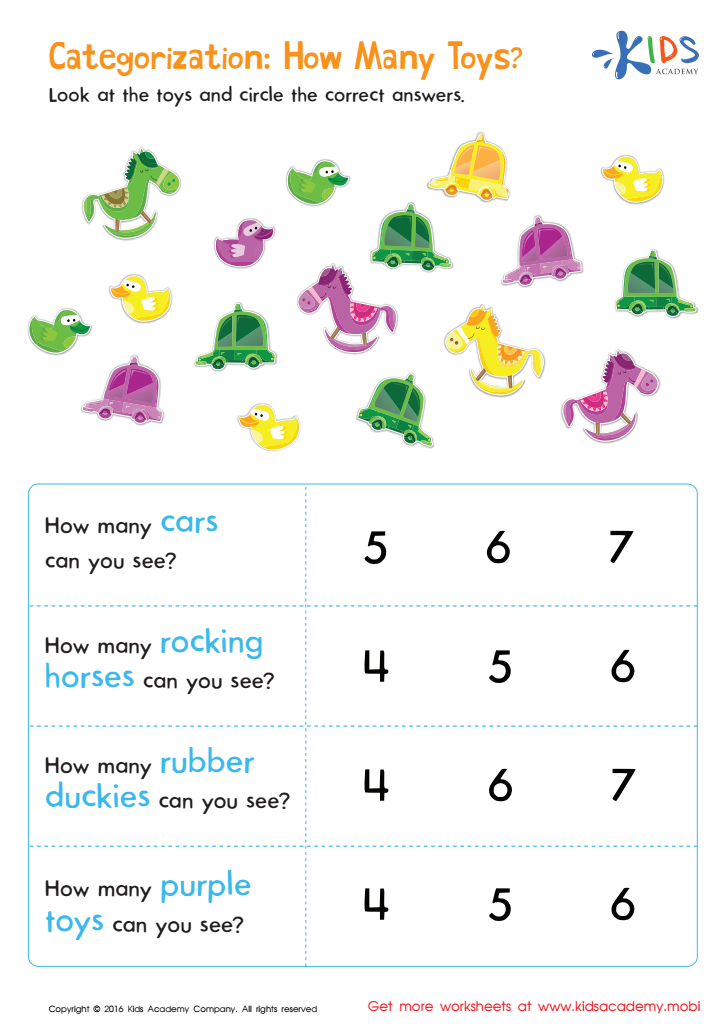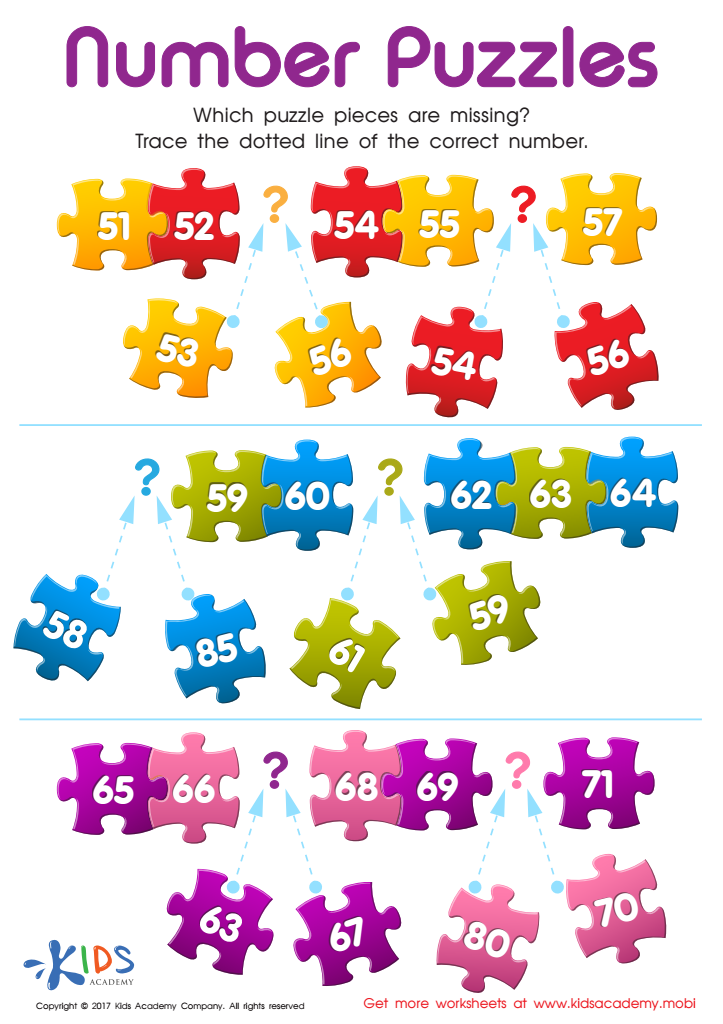Basic Math knowledge Math Worksheets for Ages 3-9
3 filtered results
-
From - To
Discover engaging and educational Basic Math Knowledge Worksheets designed for children aged 3-9. These worksheets from Kids Academy provide a fun, interactive way for young learners to build fundamental math skills, such as counting, addition, subtraction, pattern recognition, and number sense. Each worksheet is carefully crafted to match your child’s development level, making learning math enjoyable. Our printable resources are perfect for parents and teachers looking to support early math education and help kids achieve academic success. Dive into the world of numbers and turn math practice into a delightful adventure with Kids Academy!


Classifying Toys by Type and Color Sorting Worksheet


Number Puzzles Worksheet
Caring about basic math knowledge for children ages 3-9 is crucial for both parents and teachers as it sets the foundation for future academic success and practical life skills. In these formative years, children's brains are exceptionally receptive to new information, enabling them to grasp fundamental math concepts that will underpin more advanced learning in later years.
Firstly, basic math skills such as counting, sorting, and recognizing shapes and patterns help develop critical thinking and problem-solving abilities. These skills are not just essential for math, but they also transfer to other subjects and everyday life. Research shows that early math competence is a strong predictor of later academic achievement, even more so than reading skills.
Furthermore, understanding basic math facilitates children's ability to perform everyday tasks, from managing their time to understanding money. It fosters independence and confidence, as they can interact with their environment more effectively.
Parents and teachers can nurture a positive attitude towards math by integrating it into daily activities, making learning both interactive and fun. When math is seen as an enjoyable challenge rather than a chore, children are more likely to engage with it enthusiastically.
In summary, prioritizing math education from an early age helps develop essential cognitive skills, fosters academic resilience, and prepares children to navigate the complexities of the world with confidence and competence.

 Assign to My Students
Assign to My Students
















